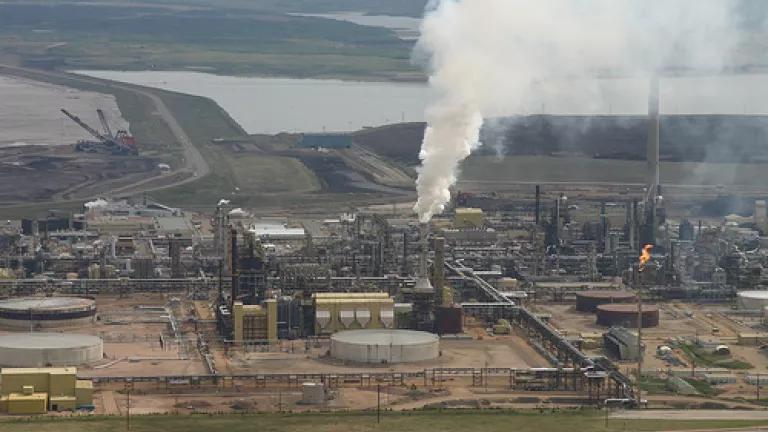
We had a victory for climate action and clean water this week. The Senate rejected an attempt to approve the Keystone XL pipeline for tar sands oil on Tuesday night. Keystone XL has sweeping implications for our health, our communities, and our efforts to reduce climate change pollution. Yet this bill would have bypassed the official review and rubber stamped the project. The Senate voted it down.
We know this isn’t the last Keystone battle, of course. Republicans have promised to bring it up again when they take control of Congress in January.
President Obama has already pushed back, saying recently, “Understand what this project is: It is providing the ability of Canada to pump their oil, send it through our land, down to the Gulf, where it will be sold everywhere else. It doesn’t have an impact on US gas prices.” If the president vetoes a bill approving Keystone XL, the tar sands pipeline supporters in Congress won’t have enough votes to override it.
I am grateful to the many Senators who rejected this bill and who spoke out about why Keystone XL is such a bad idea for our nation.
Explaining why she was voting against Keystone XL, California Senator Barbara Boxer asked, “What does XL stand for? To me it stands for extra lethal. This is a serious environmental threat…Building the pipeline will make things worse for the people we represent. Misery follows the tar sands.”
I am also grateful to the millions of Americans who have raised their voices against unchecked fossil fuel development and mounting climate change pollution. In the past few years, people from all walks of life — ranchers, farmers, nurses, executives, climate justice leaders, college students, small business owners — have demanded a more sustainable energy future.
The proposed Keystone XL pipeline has galvanized many of these concerned citizens. They know tar sands oil generates 17 percent more climate change pollution than conventional crude. They know Keystone XL is the lynchpin in industry’s plan to expand tar sands strip mines in Alberta’s great boreal forest. And they know the project would expose countless towns, drinking water sources, and working landscapes to the hazard of pipeline blowouts and oil spills.
That’s why so many have taken action. From Nebraska to Washington, DC, the Lakota Nation to Los Angeles, people have gathered together and called on leaders to reject the Keystone XL pipeline.
The vote this week shows that our voices are being heard.
But we can’t rest yet. We must continue fighting efforts to bypass the official review of Keystone XL, override environmental laws, and turn Congress into a permitting authority. The final decision rests with the president, and he must choose to reject Keystone XL.
Click here to tell the president you oppose this pollution pipeline.
Photo: Tar Sands processing plant; David Dodge, Pembina Institute.
